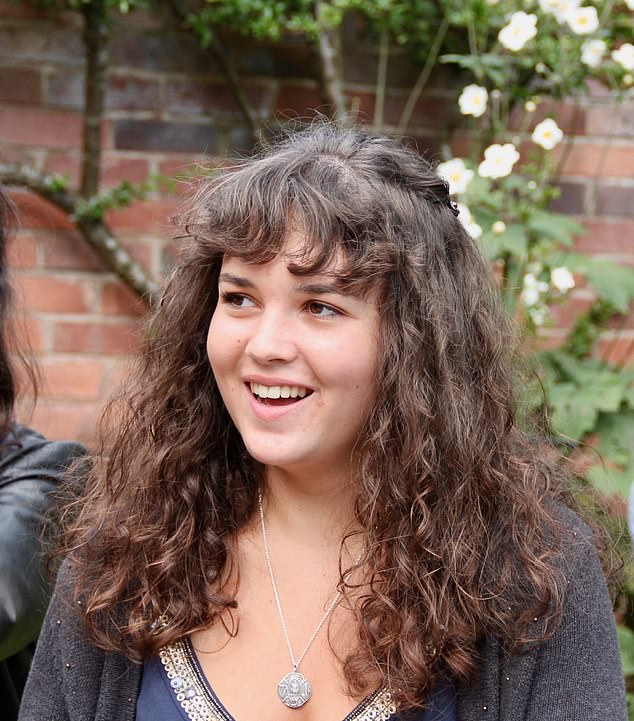GP had never seen anyone ‘treated so badly by NHS’ after woman died from ME, inquest heard


A woman died from ME after her GP warned her she had “never seen anyone treated so badly by the NHS”, an inquest has heard.
Maeve Boothby O’Neill, 27, was bedridden and barely able to move in the last months of her life due to the severity of her myalgic encephalomyelitis (ME), also known as chronic fatigue syndrome (CFS).
Her family believes her death in October 2021 highlighted a “major systemic failure” by the health service when it comes to understanding and treating severe cases of the condition.
Yesterday (Monday), on the first day of the inquest into her death, a letter was presented which Mrs Boothby O’Neill sent to her GP, Dr Lucy Shenton, begging her to ‘help me get enough food to live’.
It said, ‘I know you’re trying your best, but I really need help eating. I don’t understand why the hospital didn’t do anything to help me when I came in. I’m hungry. I want to eat.

Maeve Boothby O’Neill, 27, was bedridden and barely able to move in the last months of her life due to the severity of her myalgic encephalomyelitis (ME), also known as chronic fatigue syndrome (CFS).
‘Since March I can’t sit up or chew. The only one who helps me eat is my mother. I don’t get enough calories through a syringe.
“Please help me get enough food to live on.”
It was sent about four months before Mrs Boothby O’Neill’s death, the inquest in Exeter, Devon, was told.
Dr Shenton was devastated by her death and could only provide the court with written evidence, the inquest heard.
Mrs Boothby O’Neill visited her GP and a psychologist just four weeks before she died in September 2021. She told them she did not want to die, but that there was no treatment for ME and she did not want to prolong the agony.
Her GP said that despite her malnutrition, she was ‘energetic and thinking clearly’. He stressed that she did not want to be hospitalised again and wanted to save her energy for her family.
Dr Shenton summarised the situation as follows: ‘Maeve wants to live, but there is no further treatment for ME.’
Maeve passed away at 3am on October 3, 2021 at her home in Exeter.
Ms Boothby O’Neill’s father, journalist Sean O’Neill, said Dr Shenton told the family she had ‘never seen anyone treated as badly by the NHS as Maeve’.
Her mother Sarah Boothby claimed at an earlier hearing that medical staff at the hospital where she was treated had her best interests at heart but “they couldn’t see what was happening in front of them”.
Mrs Boothby O’Neill was admitted to the Royal Devon & Exeter (RD&E) Hospital three times in six months, but is said to have refused a fourth admission because she felt there was no prospect of treatment or cure for her condition.
Before the inquiry, Mr O’Neill expected questions would be asked about an alleged delay in palliative care for his daughter, ‘apparently because someone, somewhere in the bureaucracy that had grown up around her, did not believe her illness was real’.
Anthony Hemsley, medical director of the RD&E, said in written evidence made public at a hearing ahead of the inquest: ‘There is a lack of a recognised specialist service for severe/very severe ME/CFS, both locally, regionally and nationally.’
Mr O’Neill said at the time: ‘Imagine if this was any other disease. Imagine a hospital saying it is not qualified and therefore does not have the resources to treat patients with serious cancer, serious heart conditions and other serious illnesses in hospital. It is hard to fathom.’
At the start of yesterday’s hearing, Ms Boothby said her daughter was an “exceptional child” who enjoyed learning languages and wanted to travel abroad.
Mr O’Neill said Maeve was “academically gifted” and her death had been difficult for his other two children to understand as she had made “beautiful and unique gifts” for them, including designing and knitting Hogwarts jumpers for her siblings.
Dr Paul McDermott, a partner at Maeve’s GP practice in Exeter, told the inquest her case was ‘complex’.
He said that ME and chronic fatigue syndrome are two terms that go hand in hand, but he said he was no expert.
He visited her at home and said there was ‘nothing that stood out’ but it was ‘clearly not normal’ and said: ‘It was a disturbing picture.’
The investigation, which will take place in two weeks, continues.




